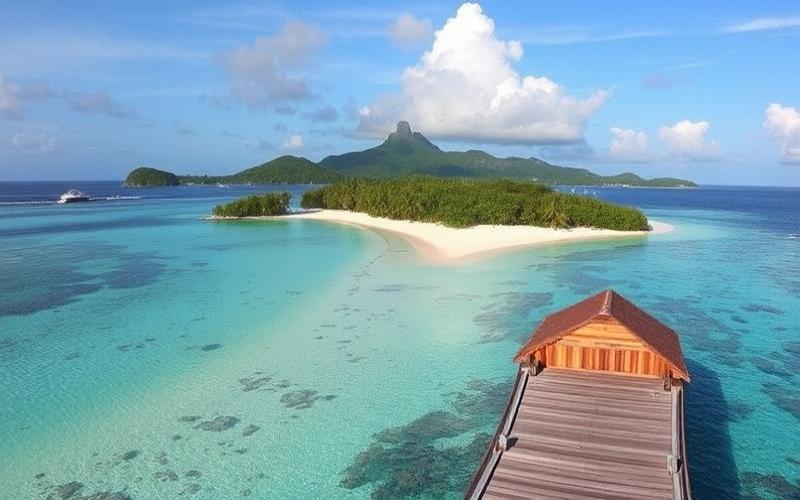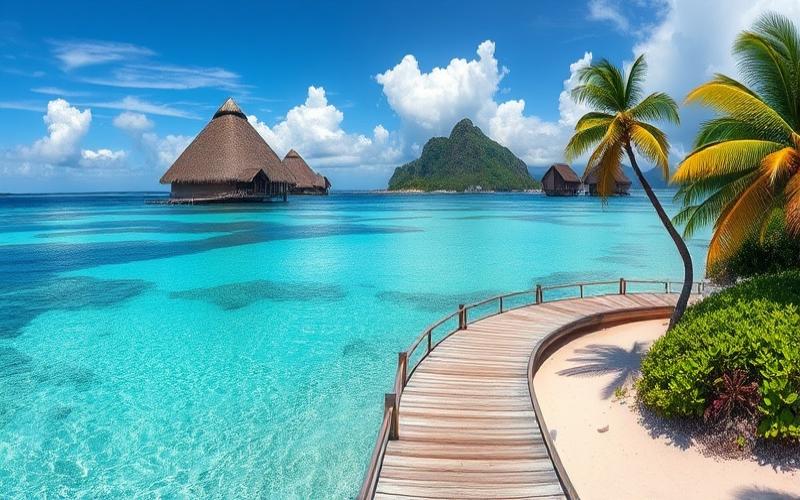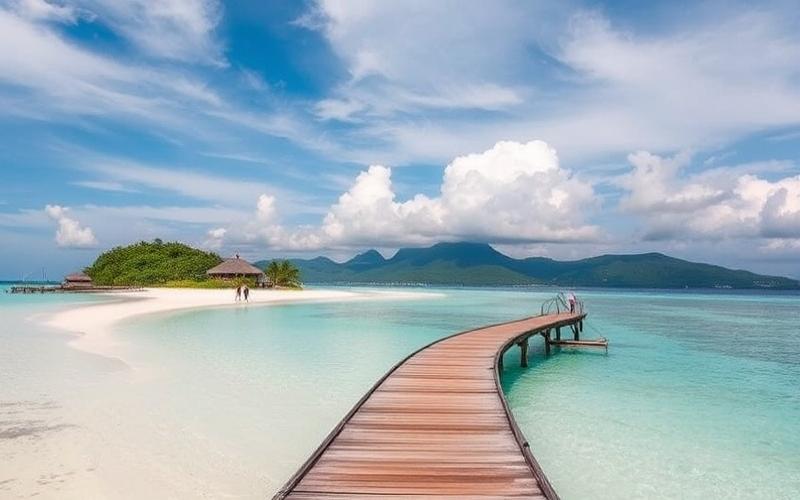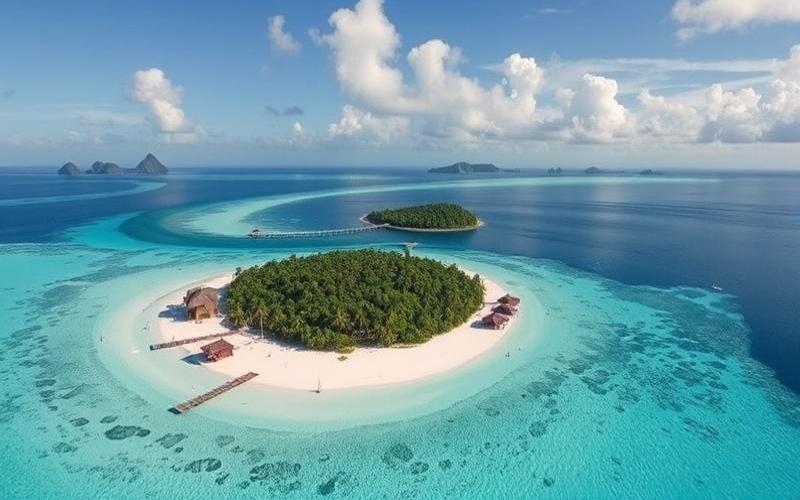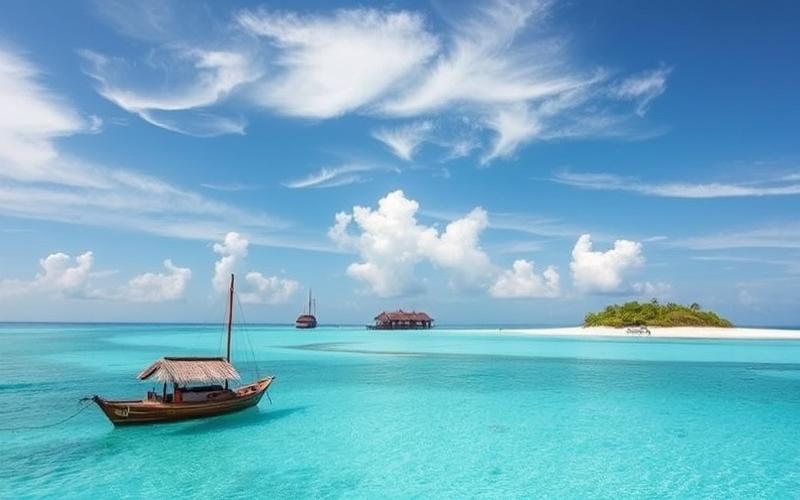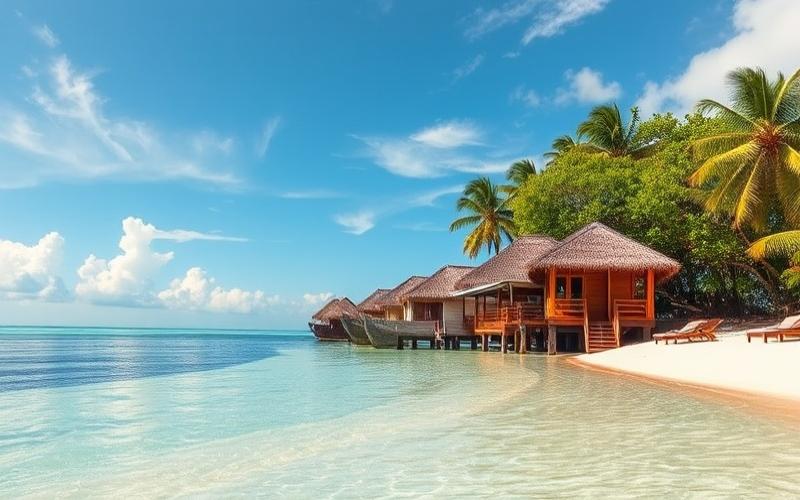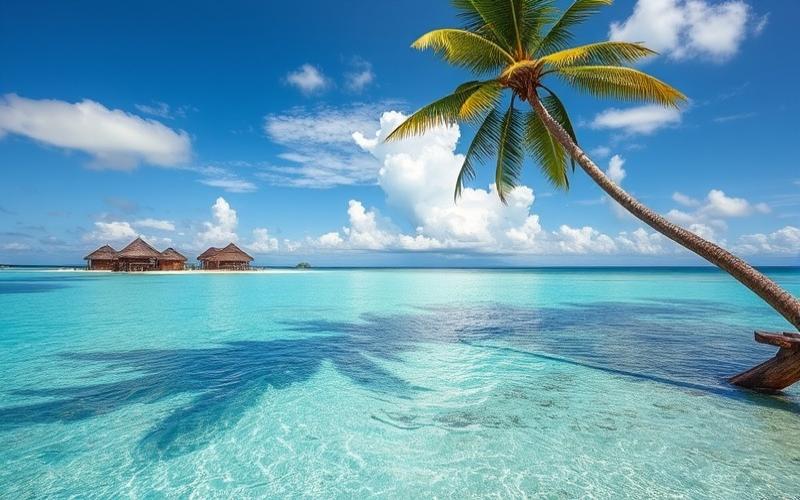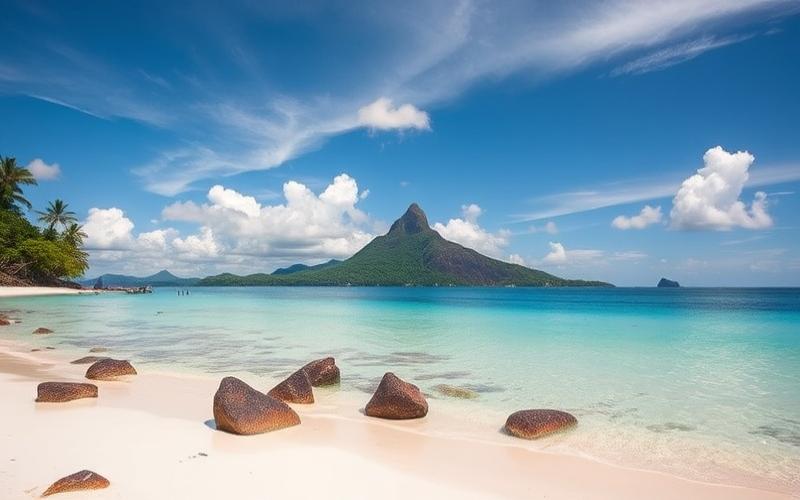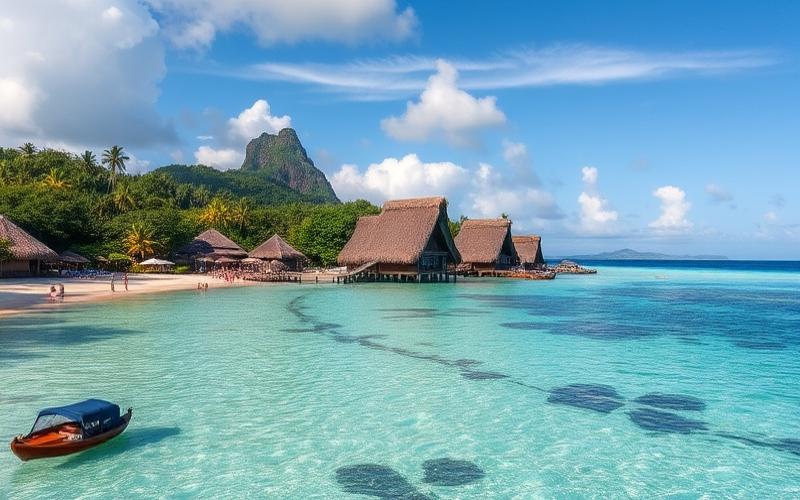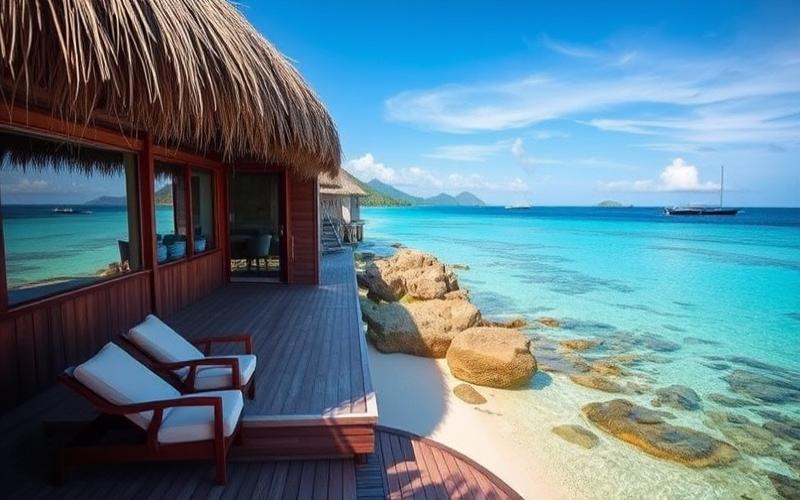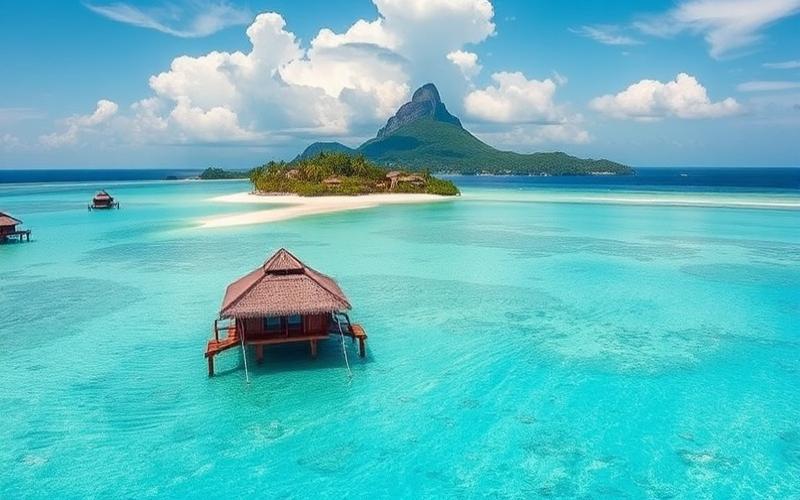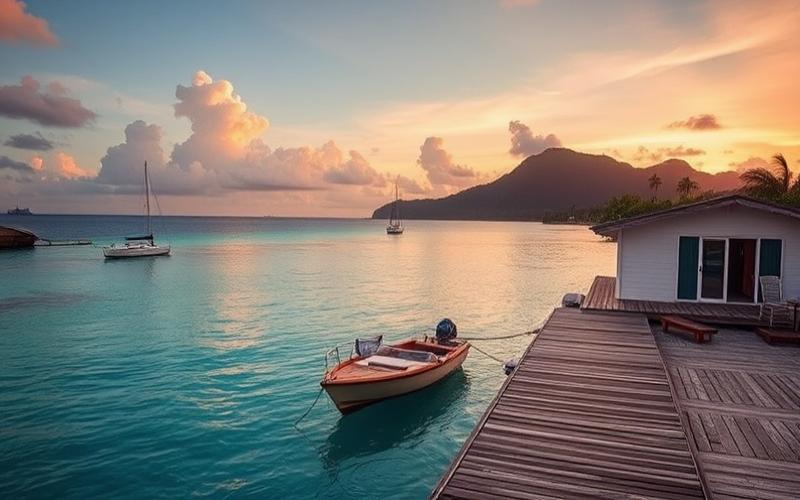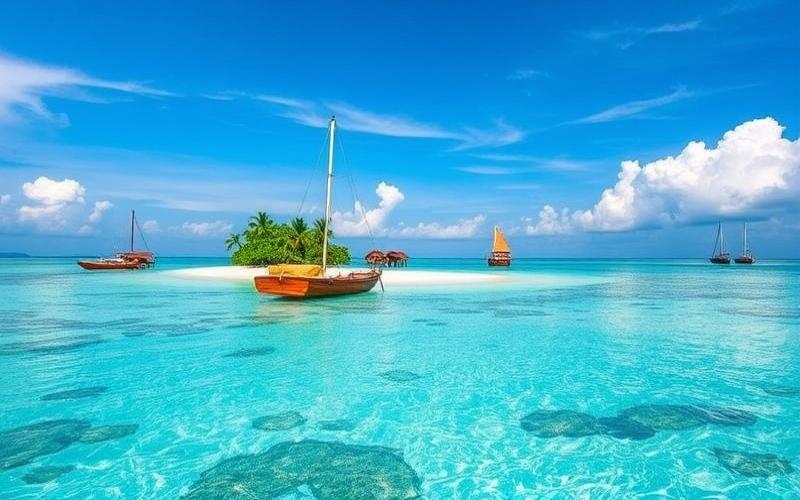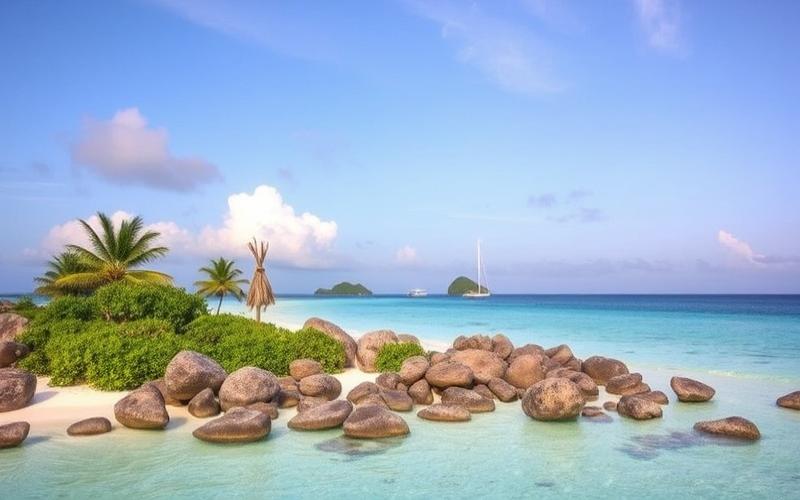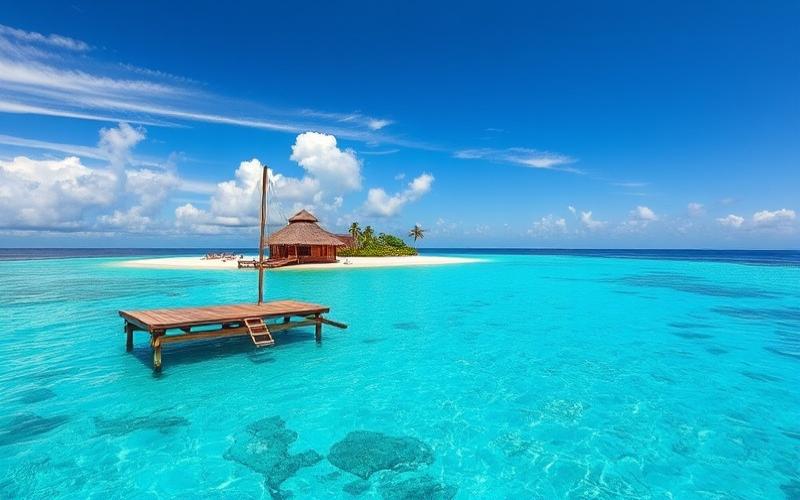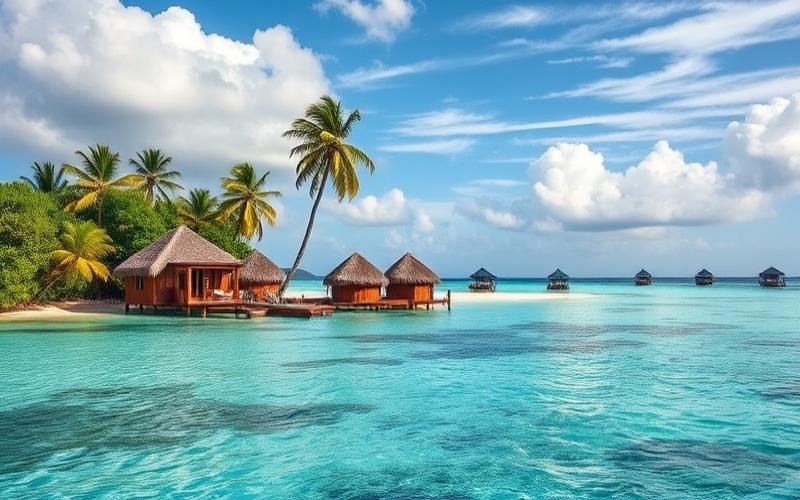
 Published on and written by Cyril Jarnias
Published on and written by Cyril Jarnias
The Seychelles, this dream archipelago nestled in the heart of the Indian Ocean, attracts many expatriates each year in search of sunshine, pristine sandy beaches, and an idyllic living environment. But behind this postcard image lies a very particular economic reality. The cost of living in the Seychelles can indeed surprise many newcomers, accustomed to European or North American standards. In this article, we will dive into the heart of the Seychellois economy to give you a clear and detailed overview of what awaits you if you decide to settle in these paradise islands.
The Price of Paradise: A High Cost of Living in the Seychelles
Contrary to what one might think, living in the Seychelles is not synonymous with savings. The cost of living in this archipelago is actually significantly higher than in many Western countries, including France. This situation is explained by several factors:
First, the island nature of the Seychelles means that most products must be imported, which significantly increases their final price. Second, luxury tourism, a pillar of the Seychellois economy, drives prices upward, especially in areas most frequented by visitors. Finally, the scarcity of certain resources, such as drinking water, also contributes to the increased cost of living.
To give you a more precise idea, here are some concrete examples of prices in the Seychelles, compared to those in France:
- A meal at a mid-range restaurant costs about €30 in the Seychelles, compared to €15-20 in France.
- A 1.5L bottle of water can reach €1.40 in the Seychelles, more than double the average price in France.
- The monthly rent for a one-bedroom apartment in the city center is about €877 in the Seychelles, compared to an average of €650 in French cities (excluding Paris).
These figures clearly show that the cost of living in the Seychelles is generally higher than in France, with differences that can reach up to 100% for certain products and services.
Good to know:
The cost of living in the Seychelles is on average 1.90% lower than in France, but the local purchasing power is 69% lower. Expatriates should therefore expect high expenses, particularly for food and housing.
An Expatriate’s Budget in the Seychelles: Prepare to Invest
To live comfortably in the Seychelles as an expatriate, a substantial budget is necessary. Estimates suggest that an expatriate should have a monthly budget of about €2,700 for a comfortable lifestyle. This amount can vary depending on the chosen lifestyle and location within the archipelago.
Here is an approximate breakdown of monthly expenses for an expatriate in the Seychelles:
- Housing: €800-1200 for a 2-3 room apartment
- Food: €500-700
- Transportation: €200-300
- Leisure and outings: €300-400
- Health and insurance: €200-300
- Miscellaneous (clothing, telecommunications, etc.): €300-400
It is important to note that these figures are averages and can vary considerably based on individual choices. For example, opting for a luxurious apartment with an ocean view can easily push the housing budget to over €2000 per month.
Comparatively, this budget is significantly higher than that needed in many other popular expatriate destinations. For instance, living comfortably in Lisbon, Portugal, requires a monthly budget of about €1500-2000, nearly 30% less than in the Seychelles.
Good to know:
Expatriates in the Seychelles should plan for a monthly budget of about €2700 to live comfortably. This amount is significantly higher than in many other popular expatriate destinations.
Daily Surprises: Expenses That Drive Up the Bill
Beyond the main budget lines, certain daily expenses can surprise newcomers to the Seychelles and significantly impact their budget.
Electricity, for example, is particularly expensive in the archipelago. Rates can reach up to €0.32 per kWh, nearly double the average price in France. This situation is explained by the Seychelles’ dependence on fuel imports for electricity production. For a medium-sized apartment, it is not uncommon for the monthly electricity bill to exceed €150, especially if air conditioning is used frequently.
Drinking water also represents a significant expense. The price per cubic meter of water in the Seychelles can reach €4.5, compared to about €3.5 in France. This difference is explained by the scarcity of fresh water in the archipelago and the high costs of treatment and distribution.
Telecommunications are another area where expatriates can have unpleasant surprises. A high-speed internet plan can easily cost over €100 per month, nearly triple the average price in France. Similarly, mobile plans are generally more expensive and offer less data than their European equivalents.
Finally, leisure activities and outings can quickly strain an expatriate’s budget. A meal for two at a mid-range restaurant can easily reach €80-100, while a day of scuba diving, a popular activity in the Seychelles, can cost between €100 and €150 per person.
Good to know:
Expatriates in the Seychelles must be particularly vigilant about expenses related to electricity, water, telecommunications, and leisure activities, which can be significantly higher than in their home countries.
Strategies to Manage Your Budget in the Seychelles
Faced with this high cost of living, expatriates in the Seychelles must adopt effective strategies to manage their budget without sacrificing their quality of life.
One of the first recommendations is to prioritize local products for food. Fruits and vegetables grown locally, as well as fish caught nearby, are generally cheaper than imported products. Shopping at local markets rather than supermarkets can lead to substantial savings on the food budget.
Regarding housing, it may be wise to move a bit away from the most popular tourist areas. Rents are often lower in quieter residential neighborhoods, while still offering a pleasant living environment. Additionally, choosing to share accommodation can significantly reduce housing costs and associated charges.
For transportation, purchasing a used vehicle may prove more economical in the long run than renting or frequently using taxis. However, one must account for maintenance and insurance costs, which can be high in the Seychelles.
Regarding leisure, many free or low-cost activities are available in the archipelago. Beaches, hikes in national parks, or visits to local markets offer excellent discovery opportunities without straining the budget.
Finally, it is crucial to manage electricity and water consumption carefully. Installing solar panels, although representing a significant initial investment, can lead to substantial long-term savings. Similarly, collecting rainwater for certain domestic uses can help reduce the water bill.
Good to know:
Prioritizing local products, opting for housing outside tourist areas, and adopting responsible consumption habits are effective strategies to manage your budget in the Seychelles without sacrificing your quality of life.
The Impact of Expatriate Status on the Cost of Living
Expatriate status in the Seychelles can significantly impact the cost of living, both positively and negatively. It is essential to understand these particularities to better anticipate and manage one’s budget.
On one hand, expatriates often benefit from higher salaries than the local average. According to available data, the average salary in the Seychelles is about €814 per month, while expatriates can command significantly higher remuneration, often in the range of €3000 to €5000 monthly, or more depending on the position and experience.
However, this status can also lead to additional costs. For example, expatriates often need to subscribe to international health insurance, whose premiums can be high. An expatriate couple can expect to pay between €200 and €400 per month for comprehensive health coverage.
Moreover, school fees for expatriate children can represent a significant portion of the budget. The International School of Victoria, for example, charges annual fees ranging from €8000 to €15000 per child, depending on the level.
One must also account for costs related to regular travel to the home country. A round trip between the Seychelles and Europe can easily cost between €800 and €1500 per person, depending on the season and airline.
Finally, expatriates may be subject to specific taxation. Although the Seychelles has an attractive tax regime, with an income tax rate capped at 15%, it is crucial to fully understand the tax implications of one’s expatriate status, both in the host country and the home country.
Good to know:
Expatriate status in the Seychelles often offers salary advantages but also entails specific high costs, particularly in terms of health insurance, children’s education, and travel. Meticulous financial planning is essential to effectively manage these aspects.
Future Outlook of the Cost of Living in the Seychelles
Understanding current and future trends in the cost of living in the Seychelles is crucial for expatriates considering long-term settlement in the archipelago.
In recent years, the Seychelles has experienced relatively high inflation, with annual rates fluctuating between 3% and 5%. This trend, if it continues, could lead to a continuous increase in the cost of living in the coming years. The most affected sectors are typically food, housing, and transportation.
The Seychellois government is aware of these challenges and is implementing policies aimed at diversifying the economy and reducing dependence on imports. These efforts could, in time, help stabilize some prices, particularly in the food sector.
The tourism sector, a pillar of the Seychellois economy, will likely continue to exert upward pressure on prices, especially in areas most frequented by visitors. However, the development of more sustainable and better-distributed tourism across the entire archipelago could help balance this trend.
Investments in renewable energy, particularly solar, could in the medium term help reduce electricity costs. The government has set the ambitious goal of reaching 15% renewable energy in the energy mix by 2030, which could have a positive impact on household bills.
Finally, the evolution of the real estate market will be a key factor to monitor. The growing demand for housing, combined with the scarcity of buildable land, could maintain upward pressure on real estate prices and rents.
Good to know:
Although the cost of living in the Seychelles remains high, government initiatives aimed at diversifying the economy and promoting sustainable development could, in time, help stabilize some prices. Expatriates should remain attentive to these developments to adjust their financial planning accordingly.
Disclaimer: The information provided on this website is for informational purposes only and does not constitute financial, legal, or professional advice. We encourage you to consult qualified experts before making any investment, real estate, or expatriation decisions. Although we strive to maintain up-to-date and accurate information, we do not guarantee the completeness, accuracy, or timeliness of the proposed content. As investment and expatriation involve risks, we disclaim any liability for potential losses or damages arising from the use of this site. Your use of this site confirms your acceptance of these terms and your understanding of the associated risks.

